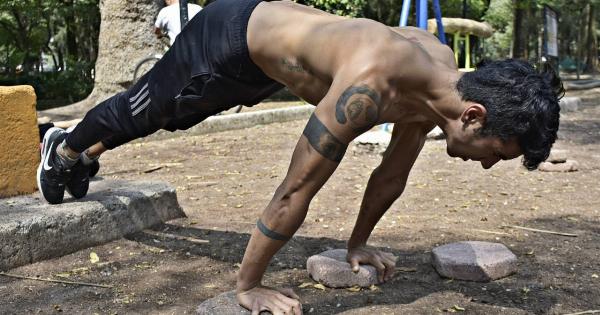Bile stones or gallstones are one of the most common digestive conditions among men and women.
They are usually made up of cholesterol and bile salts that form small, hard deposits in the gallbladder, a small sac located underneath the liver, which is responsible for storing bile. When the bile stones cause a blockage in the bile duct, the person may experience symptoms such as pain in the upper right abdomen, nausea, vomiting, and fever.
Causes of Bile Stone Formation
Several factors can cause the formation of bile stones, including:.
1. Obesity
Overweight or obese people have an increased risk of developing bile stones as their liver produces more cholesterol than normal, which is the primary component of most gallstones.
2. Poor diet
A diet high in fat, cholesterol, and sugar can cause bile stones, as these nutrients increase the levels of cholesterol in the bile, making it more likely to form stones.
3. Sedentary lifestyle
A lack of physical activity or exercise is associated with an increased risk of developing bile stones.
When we don’t move our bodies regularly, our digestive system may not work efficiently, leading to the accumulation of bile in the gallbladder, which can form stones over time.
4. Genetics
Some people are more susceptible to bile stone formation due to their genetic makeup. If you have a family history of bile stones, you are at a higher risk of developing them too.
The Role of Exercise in Preventing Bile Stone Formation
1. Exercise Reduces the Risk of Obesity
Regular exercise is one of the best ways to lose weight and maintain a healthy body weight. By burning extra calories and fat, exercise helps reduce the risk of obesity, which is a leading cause of bile stones.
2. Exercise Improves Digestion
Physical activity stimulates the digestive system, promoting the release of digestive juices such as bile, which helps break down fats in the intestines.
When our digestive system works efficiently, there is less chance of bile accumulation in the gallbladder, reducing the risk of bile stone formation.
3. Exercise Lowers Cholesterol Levels
Regular exercise has been shown to lower blood cholesterol levels, which can help prevent the formation of cholesterol-based bile stones.
Exercise helps improve the function of the liver, which removes excess cholesterol from the blood and produces fewer cholesterol particles that can form stones.
4. Exercise Reduces Inflammation
Bile duct inflammation is a common complication of bile stones, leading to pain and discomfort.
Regular exercise helps reduce inflammation in the body by lowering the production of inflammatory cytokines and increasing anti-inflammatory compounds, thus reducing the risk of complications.
5. Exercise Promotes Healthy Habits
Exercise can also promote other healthy habits, such as following a balanced diet, getting enough sleep, and reducing stress, which can all contribute to lower the risk of bile stone formation.
Types of Exercises to Prevent Bile Stone Formation
1. Aerobic Exercise
Aerobic or cardio exercise is an excellent way to lose weight, lower cholesterol levels, improve digestion, and reduce inflammation. Examples of aerobic exercises include running, swimming, cycling, or brisk walking.
Aim for at least 30 minutes of aerobic exercise most days of the week.
2. Resistance Training
Resistance or weight training helps build muscle mass and strength, contributing to more efficient fat burning and improved metabolism. Examples of resistance exercises include lifting weights, doing push-ups, or using resistance bands.
Aim for two to three sessions of resistance training per week.
3. Yoga
Yoga is a great way to improve flexibility, reduce stress, and promote relaxation, all of which can help prevent bile stone formation. Some yoga poses are specifically beneficial for digestion, such as twists and forward folds.
Aim for at least two to three yoga sessions per week.
Conclusion
Preventing bile stone formation requires a combination of healthy habits, including regular exercise.
By promoting weight loss, reducing cholesterol levels, improving digestion, reducing inflammation, and promoting healthy habits, exercise can significantly lower the risk of bile stones. Incorporate aerobic, resistance, and yoga exercises into your routine to maximize the benefits and reduce the risk of developing bile stones.






























